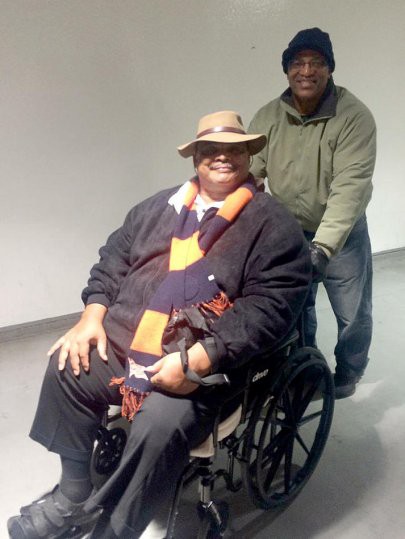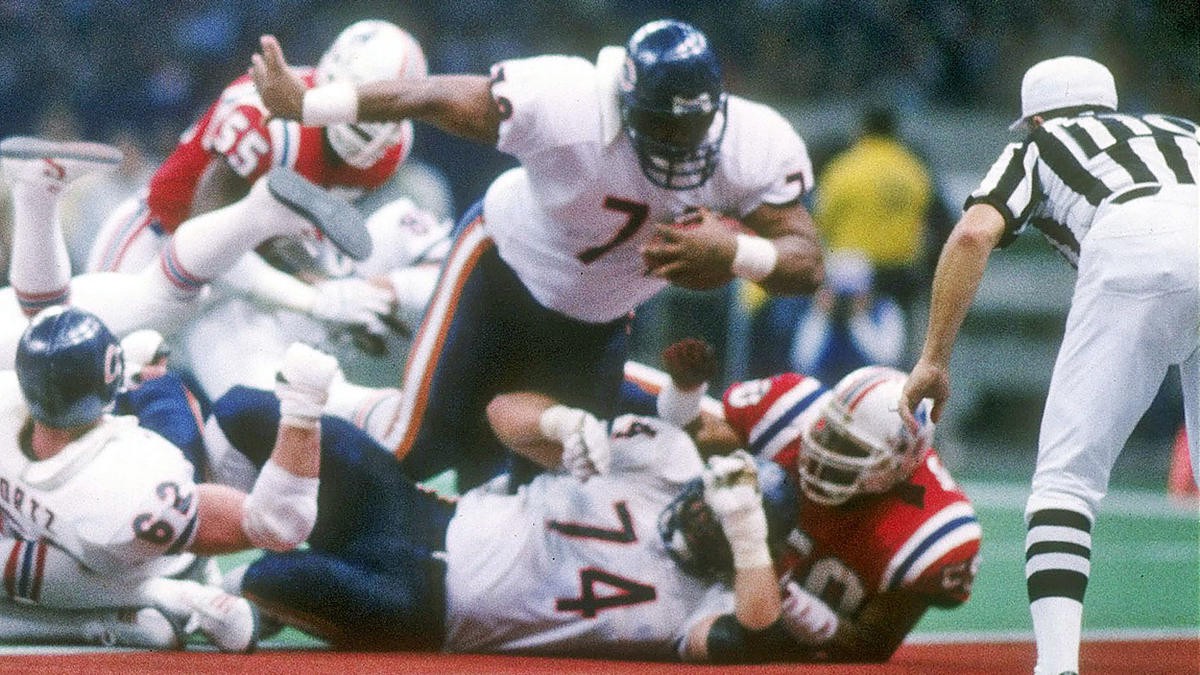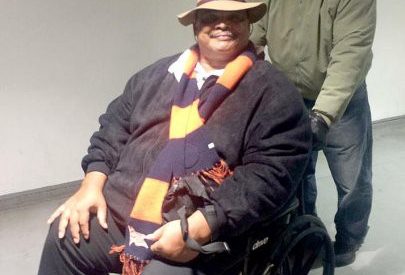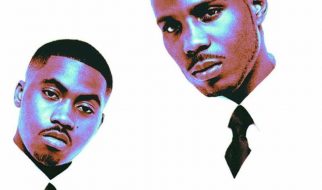 Former NFL hero William Perry, pictured here attending a Bears game at Soldier Field, is one of multiple retired football stars to fall on hard times.
Former NFL hero William Perry, pictured here attending a Bears game at Soldier Field, is one of multiple retired football stars to fall on hard times.
With the 22nd pick in the 1985 NFL Draft, the Chicago Bears selected? William Perry.
Pete Rozelle?s announcement of head coach Mike Ditka?s first-round draft selection immediately rubbed defensive coordinator Buddy Ryan the wrong way. Ryan subsequently scolded Ditka, referring to Perry as a ?wasted draft-pick?.
It didn?t matter that Perry was a former consensus first-team All-American who had won a national championship with Clemson. Buddy Ryan wasn?t about to let him join the Bears? cradle of defensive legends and would be-legends.
But although Ryan didn?t have immediate plans for Perry in the defense?s playbook, Mike Ditka wasn?t prepared to let his first-round pick ride the bench. Throughout the Bears? unforgettable 1985 season, Ditka saw Perry?s foot speed during practice and decided to play Perry on offense. Ditka?s playbook would see Perry occasionally substituting for fullback Matt Suhey whenever the Bears faced goal-line or fourth-down situations.
These seemingly unorthodox calls paid off. Perry scored three touchdowns at fullback his rookie season. On his second career handoff as the Bears faced the New England Patriots, he scored a touchdown and trampled Patriots linebacker Larry McGrew. It seemed like from this moment on, his teammates and fans grew to love him. While he had originally received his nickname ?Refrigerator? from a friend in college when the two could barely fit in an elevator together, it was in the NFL that the nickname became part of his identity. Perry?s teammates and fans began referring to him as ?Refrigerator?, ?Fridge?, and even ?Biscuit?. According to his former teammates, Perry was ?one biscuit shy of 350 pounds?.
Eventually, there was one last person Perry had to impress: Buddy Ryan. Eventually, Ryan realized that Perry had more ability to work magic than he had thought. Midway through Perry?s rookie season, Perry was finally included in the Bears? iconic 46 defense scheme alongside the likes of Mike Singletary, Richard Dent, and Dan Hampton.
The Bears dominated the 1985 season with a 15?1 record and cruised on to decisively defeat the New England Patriots, 46?10, in Super Bowl XX. Perry even got an opportunity to score a third-quarter touchdown on a goal-line rush. When it came time to distribute the coveted Super Bowl rings, William Perry?s size 25 ring went on to become the largest in NFL history.
 Perry scores on a 1-yard touchdown rush in Super Bowl XX. The Chicago Bears defeated the New England Patriots, 46?10.
Perry scores on a 1-yard touchdown rush in Super Bowl XX. The Chicago Bears defeated the New England Patriots, 46?10.
However, when his rookie season concluded, it seemed like Perry would never see such glory as an NFL player again. The 6’3″, 350-lb dominator and offense and defense could only nine more seasons in the league. During his career, he could play only 138 games while limited due to weight problems and injuries. He finished his career in 1994 with the Philadelphia Eagles after recording only 29.5 career sacks. He attempted a comeback in Europe with the London Monarchs after two seasons out of football. However, that would be the last time he ever played a snap.
Outside of football, Perry attempted to continue earning income. But efforts were often to little or no avail. Having used his celebrity status to fight Jim ?The Anvil? Neidhart in 1986?s Wrestlemania 2, he was included in the WWE Hall of Fame?s ?Celebrity Wing? in 2006. As a boxer, Perry fought one match on FX against Bob Sapp in 2000. In 2003, he fought three rounds against former NBA star Manute Bol on Celebrity Boxing, and all proceeds went to charity.
Perry has also attempted a career in music as a rapper, but has only sold two records (re-releasing one of them for charity following the death of his friend and former teammate Walter Payton in 1999). As a businessman, he attempted to market a line of barbecue sauce in 2006, only to receive limited mileage. The same year, he turned down an offer to work an executive position with the Continental Indoor Football League.
Although the league has since folded, it?s easy to see that turning down the offer was a financial mistake on Perry?s part.
A mistake that not soon after, he would start paying for dearly.
In 2008, Perry was diagnosed with Guillain-Barre syndrome, a chronic condition that causes nerve damage. As a result, he was hospitalized one year after, and it was later revealed that he was losing his hearing and had lost 100 pounds.
But that was just the beginning of the fall of the Refrigerator.
In 2011, ESPN reported that due to his health problems and heavy drinking, Perry?s weight had ballooned to 400 lbs and that he could barely walk without the support of a cane. Shortly afterward, Perry, whose weight had increased to 425 lbs, was wheelchair-bound and diagnosed with diabetes.
In order to pay off his expenses, Perry had to sell his own gigantic Super Bowl ring for money. But it still wasn?t enough. As of September 2015, William Perry has never left the house of his late father, where he lives with his brother and guardian Michael. Perry?s only income comes in the form of monthly government disability insurance, social security, and NFL pension payments.
As a lifelong Chicago Bears fan, it?s heartbreaking to see a household name in Chicago sports history be slowly reduced into a shell of his former self. In a city that remembers Michael Jordan as a sports legend-turned-business legend, it has to be understood that it?s in the best interests of athletes to make the right choices whether times are good or bad. Despite having to pay his ex-wife Juanita Vanoy a $168 million divorce settlement following the dissolution of their marriage in 2006, Michael Jordan went on to become a billionaire in 2014.
William Perry isn?t the only athlete to fall on hard times after the playing days come to an end. Throughout North America?s major sports leagues, players make mistakes during their heyday only to pay for them later. Some struggle with their finances, some face health problems, some get in trouble with the law, and some simply fall from good graces in the court of public opinion.
On August 24, 2017, comedian and Saturday Night Live cast member Pete Davidson appeared on the show?s Weekend Update, where he joked about the NFL?s hesitation to work with controversial quarterback Colin Kaepernick, remarking, ?there?s something wrong with the NFL?s priorities if they?re furious one player won?t stand up for the national anthem, but only kind-of mad that because of all the concussions, none of them will be able to stand up at all by the time they?re 50 [years of age]?.
This joke was stated around the same time that scientists revealed that former professional football players at a high risk of being diagnosed with chronic traumatic encephalopathy (CTE) and other forms of severe chronic brain damage due to the frequency rate at which NFL players suffer head injuries.
But injuries or not, William Perry?s story is a cautionary tale of not only the toll professional sports having physical demands, but of the importance of professional athletes making smart financial choices. This includes gathering endorsements and investing in the right places while still in athletic prime. This also includes finding work and continuing education rather rather than pursue maintaining celebrity or lavish lifestyles. And if spending has to be done, then do like LeBron James and buy a school for underprivileged children rather than another yacht for one?s self.
In a 2017 interview with Business Insider, NBA legend Shaquille O?Neal commented regarding poor financial decisions made by athletes, ?a lot of people don?t have the business mind? you?re making $20 million, you spend, like, $20 million in the first year. You?ll be like, ?You know what? I?ve got another $20 million coming?. That?s how guys are thinking?. He also added his advice for young athletes trying to maintain their mega-salaries, ?Don?t think about what?s going on now. Think about what has to go on in the future?.
Today, as present research and past data provides us the data about the troubles faced by athletes, athletes now have more ability to make wiser decisions that will offset the troubles they face while they?re still playing, regardless if it?s injury-related or not. If they are able to surround themselves with the proper support to help them maintain their heyday past retirement, then we may be looking at a future Michael Jordan.
As for William ?Refrigerator? Perry, we can only hope and wish that he finds a light at the end of the tunnel and remember him for dominating on both sides of the ball at Soldier Field.


